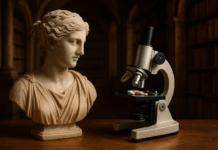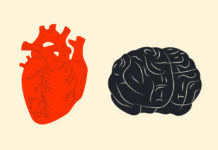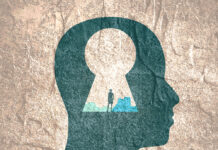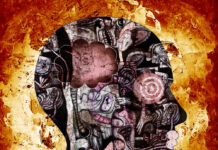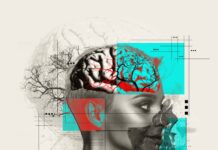Research News
Less Screen, More Sleep: Cutting Smartphone Use Lifts Mood and Lowers Stress
A randomized trial finds that reducing daily screen time improves well-being and sleep quality among young adults.
Psychiatric Labels Confine More Than They Clarify, Researchers Argue
A new article reviews evidence that diagnostic categories shape identity and worsen outcomes, calling for alternatives to fixed labels.
Medicine Is on the Brink of “AI-Induced Deskilling”
Research is piling up to show that once doctors use artificial intelligence, they begin to lose their vital skills—and trainees may never learn them.
From Molecules to Meanings: Scholars Call for ‘Pharmaceutical Humanities’
The authors contend that pharmacists need narrative competence and a new disciplinary home that joins ethics, culture, and care with pharmacology.
New Research Suggests Early Childhood Behavior May Predict Cluster A Personality Disorders
By tracking children over 12 years, researchers suggest that traits and social experiences together may explain adolescent difficulties.
Study Finds Bipartisan Support for Mental Health Care Without Coercion
The findings, published in JAMA Network Open, suggest that federal calls for increased use of coercive measures run counter to public opinion.
Prescription Stimulant Use Linked to Higher Rates of Psychosis
A systematic study finds a higher incidence of psychotic and bipolar symptoms in individuals diagnosed with ADHD who are prescribed stimulants.
Trauma-Informed Care and the PTMF: How Does It Work in Practice?
The program reduced self-harm, seclusion, and restraint. Now we have a better idea of how it was able to achieve that goal—and the barriers preventing it from being used more often.
Micronutrient Supplements: Better Than Antidepressants for Depressed Pregnant Mothers and Their Babies
In NUTRIMUM, newborns ended up with fewer complications than even the newborns of women who didn’t have depression at all.
AI Study Finds Psychiatric Diagnoses Overlap Too Much to Be Useful
New research shows that attempts to sort human distress into discrete boxes—whether by experts or algorithms—fail to capture lived experience.
Relational Depth in Psychotherapy Linked to Reductions in Depression and Anxiety
New research points to relational depth as a stronger predictor of change than traditional alliance measures.
“Medicine Is Awesome” Mentality Fueling Harmful Antidepressant Use, Say Experts
The authors call for a paradigm shift in mental health care that emphasizes empathy, context, and alternatives to medication as first-line treatments for depression.
German GPs Say They Need More Support to Help Patients Stop Antidepressants
New research from Germany shows how guidelines, system pressures, and lack of collaboration limit deprescribing.
When Peer Support Workers Must Be “Just Mad Enough”
NHS peer workers describe the burden of proving themselves as “success stories” while concealing distress.
Collective Action May Protect Mental Health of LGBTQ+ Young Adults
A new study finds that activism protects some LGBTQ+ young adults from the mental health toll of critical consciousness, while trans youth and people of color remain vulnerable.
Antidepressants Linked to Insomnia in Children and Adolescents, Meta-Analysis Finds
Sertraline (Zoloft) showed the highest risk, with odds of insomnia more than doubling compared to placebo.
What If Psychology Started With the Heart Instead of the Mind?
A new study explores how Chinese and Japanese traditions of “heart-mind” open alternatives to psychiatry’s brain-bound models of distress and healing.
No Subgroup of Patients for Whom Antidepressants Are Effective
A reanalysis of STAR*D finds no support for the theorized subgroup of patients who do well on antidepressants.
Psychiatric Coercion Lacks Ethical or Legal Justification, Scholar Argues
Dirk Richter reviews the five ethical and legal standards for forced treatment and finds none are met.
How People Around the World Make Sense of Psychosis
Findings highlight the importance of cultural and spiritual frameworks in how people make sense of psychosis.
How Mental Health Rights Are Misused to Entrench Psychiatric Coercion
Emmanuelle Bernheim argues that legal rights often reinforce, rather than dismantle, coercive psychiatric practices.
Childhood Trauma Is a Global Mental Health Crisis, Researchers Warn
A survey of more than 16,000 youth across three countries shows a clear link between adverse experiences and mental illness.
Researchers Criticize Putting Preschoolers on Stimulant Drugs
Against guideline recommendations, preschoolers were often prescribed stimulants without even having the chance to try family behavioral therapy.
Scientists Warn of Overlooked Mental Health Effects From PFAS
A review of PFAS exposure highlights gaps in research but points to disproportionate risks for marginalized communities.
Adolescents Diagnosed With ADHD and Autism Describe What Upsets Them
Young people say school rules, social exclusion, and sensory overload often trigger distress. A new study centers their voices and challenges deficit-based models.




